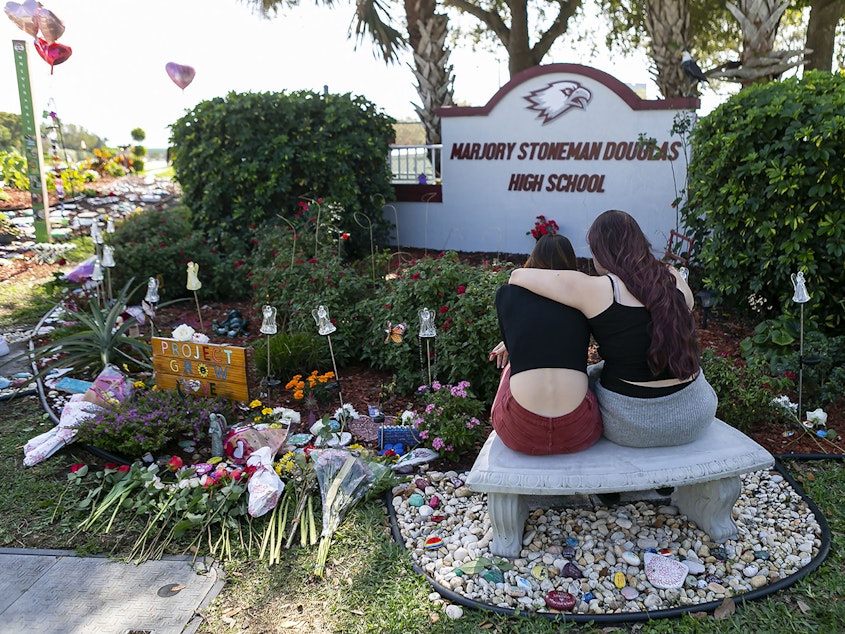The gunman will plead guilty to the Parkland, Fla., high school shootings

Nikolas Cruz will plead guilty next Wednesday to killing 14 students and three staff members at Marjorie Stoneman Douglas High School in Parkland, Fla., his defense team says.
With the admission of guilt in the 2018 mass shooting, Cruz's legal team will focus on the penalty phase of the trial, hoping to secure a punishment of 17 consecutive life sentences for their client, rather than the death penalty that prosecutors are seeking.
The timeline for Cruz, 23, to plead guilty emerged during a hearing Friday morning where he pleaded guilty to felony battery on a law enforcement officer. In that case, Cruz was accused of hitting and kicking a prison guard and trying to take his Taser.
As Cruz admitted guilt in that case, his lawyers told Broward Circuit Judge Elizabeth Scherer that he is also prepared to plead guilty in the homicide proceedings.
Cruz's guilt is widely seen as a foregone conclusion, particularly after a video recording emerged that he made shortly before the killings.
Sponsored
"With the power of my AR, you will know who I am," Cruz said, referring to his rifle. In one segment, he stated, "My life is nothing and meaningless. I live a lone life. I live in seclusion and solitude. I hate everyone and everything."
The Parkland massacre rocked the U.S. in 2018 and led to a new push for more effective gun control laws, as victims and families who lost loved ones urged lawmakers to act to halt gun violence — particularly the school shootings that have devastated numerous U.S. communities.
NPR's Russell Lewis and Greg Allen contributed to this report. [Copyright 2021 NPR]


